| Umělec 2003/3 >> GOTT THE ARTIST | Просмотр всех номеров | ||||||||||||
|
|||||||||||||
GOTT THE ARTISTUmělec 2003/301.03.2003 Tony Ozuna | focus | en cs |
|||||||||||||
|
"A medley of hits plays in a swank Prague restaurant. It’s a recent all-
covers affair, belted out by Tom Jones with the floor-stompers, “Theme to Evita,” “Somewhere Over the Rainbow,” from the Wizard of Oz soundtrack, Rod Stewart’s “If You Think I’m Sexy,” etc. I’m sure the tourists love this stuff in Vegas; it could even be his actual playlist for casino tours, but as far as I’m concerned, it’s schlock. Even if Tom Jones has a cool name, some good videos, and is buff. Even if he has done the Talking Head’s “Burning Down the House” for some street cred, the music on this particular CD is crap. It’s a medley for the geriatrics ward, Jones and his peers trying to get it up one last time. Yet, Tom Jones is “cool,” because the place I’m eating lunch is staffed by hip, pretty people — the interior is dark, a lounge atmosphere with strange photographs, close-ups of noses, ears, mouths. This place is so hip that there is no way in hell you’d ever hear someone like the sexagenarian Czech singer Karel Gott on the sound system. I asked the manager, myself, and he replied, “Gott, no way!” Well then why Tom Jones, and not Gott? I thought to myself. It can’t be just because websites tell us Tom is so cool. Like the following: “TOM JONES — WOW IS HE COOL!!!!! This site is a tribute to Tom Jones, the king of cool. It features Tom Jones lyrics, news, pictures, and chartings. TOM JONES. THE KING OF COOL, THE VOICE. www.geocities.com/CapitolHill/Lobby/2927/jones.htm Admittedly, Jones did not get famous by doing kitschy cover versions of originally kitschy songs. Back in the day, he did record some jams: “It’s Not Unusual,” and “What’s New Pussycat,” etc. Now in his mid 60s, the Welsh Elvis with gold chains around his neck, and sweaty chest full of thick black hair is still appealing to thousands of women and men with his sexual swagger. Roughly the same age as Jones, Karel Gott, on the other hand, seems not to have an endless list of fan websites like Tom, though he does have some gems in his oeuvre, like the title song for the film Maja the Little Bee or “Where is your Nest, Little Bird?” and because of these, his aging fans do extend well beyond the Czech Republic, Slovakia, and the former Soviet bloc. In hard numbers, Gott has a devoted following comparable to Tom Jones, yet it is a more respectable one, because it is without all of the sexually depraved fanaticism. The “Golden Voice of Prague” does not have and never did have screaming women hurling their panties up at him on stage. That just wasn’t a thing that communist-era women did at concerts. When I saw Tony Bennett, in the Lucerna Ballroom years ago, the grand room was practically empty except for a hundred or so Czech old-timers huddled up close to the stage. Despite the low turnout, Tony still sang his heart out, because he has class. Essentially, Tony Bennett, Tom Jones and Karel Gott are all solid entertainers, top-rate song and dance guys. But under the surface, setting himself apart from all the other crooners of his generation, Karel Gott has a suspiciously keen grasp of European history, and he is an artist. In a popular magazine interview in 2001, Gott recalled events of centuries ago like it was yesterday. He said, “I’m convinced that especially in the last century these [events] are not mistakes; politics is developing according to an exact script, and nothing is by accident, even the worst events like wars. The winner is always decided long in advance. The same banks which supported the ones who started [the war] negotiated with the ones who were attacked. “World affairs are controlled by internationalist circles, the so-called illuminati, or enlightened ones, as well as the holy orders, and lodges [Masonic], all the way up to mystic-occult organizations. I’m talking about people who determine who will perform the politics, and the rest is all grand theatre.” Tom Jones has never talked with such authority about politics and history. Other crooners like Sinatra and Dean Martin also held tight to their role as “entertainers-only” amidst the mafia, corrupt politicians and all of the party people from both of these worlds, which were so openly dependent on each other in ‘50s and ‘60s America. Gott, on the other hand, speaks about events in history in such a personal way that you’d almost think that he had been there himself. Gott says, [concerning the Illuminati] “They financed all enemy parties in the Napoleonic wars. They sent reports from the battlefield by carrier pigeons, because they were faster than couriers. So, only the chosen ones were correctly informed that Napoleon was decisively defeated at Waterloo. They were the only ones who could make advantageous financial operations and the others were left to wipe their noses.” And so, maybe because of his unusual political and historical insight, it was not a total surprise to the nation when in 2003, Gott was resurrected in the press by a campaign to elect him as President of the Czech Republic. Beyond this political side, Gott is also painter; though he is an amateur, he has had exhibitions around Europe. Gott the Artist Years ago, I lived in Smichov opposite Karel Gott’s grand villa. He was on a hill, like a king, and I lived below by the graveyard, in a ruin of Gypsy squalor. But, with binoculars I had a great view of his place and I followed his late night activities obsessively. He rarely got home before midnight and usually he got home past that. I never saw his girlfriend Ivana Machačková enter the place; he was always alone, yet after getting home he didn’t go straight to bed. Regularly, Gott would head straight to his atelier and paint. He’d often paint till sunrise, then retire till early afternoon. In his book, Paintings, or why it is important for me to paint, Gott confirms this activity as I saw it. “In order to take the easel and brush in hand, it must be the right day. And if the feeling isn’t there, then it’s better to say that today I won’t paint at all. Other times there’s a day when interesting work comes up and during the night you completely lose track of time; you realize, suddenly, that the sun is rising, that it’s 6:00 in the morning and you still haven’t slept. That is where your freedom lies.” Because of the distance, I could never decipher what he was actually painting, though this was during the period of some of his best Picasso-influenced, surrealistic kitsch: Corrida del Torro (1999) which combines a bull resembling the stumpy horses from Kupka’s painting Ballad—Joy of Life merged into cubist Picasso and black velvet matador paintings from Tijuana. And Motherhood (1999), which is “realist” surreal: a white woman beside a little black girl, who is clutching at a littler Asian girl. This is a realm of power relationships and feminist multiculturalism that established Czech artists rarely dare to enter. Gott’s older work is less surreal. A painting called Time of Tenderness (1973) has two long-haired, buxom women embracing; these lesbian lovers with such thick eye lashes, lips, and nipples are reminiscent of Chicano prison art. This is the kind of Chola babe art used in “Dedication” drawings seen in magazines like Teen Angels and La Bandera. These Chicano underground publications give young gang-members a chance to express themselves creatively, on their own terms, in their own vernacular and most importantly, in a sensitive way as opposed to common street graffiti scrawl. It is an outlaw art, and in some cases it is the raw art of street killers. Whereas baby-faced Gott is just an ageless lady-killer, in both cases, the art of Karel Gott and Chicano gangsters at its best is an authentic, naive erotica. It figures that Gott’s Time of Tenderness is now in a private collection in Los Angeles, which is the heart of Chicano street art. A decade ago, Karel Gott had his first independent art exhibit at the Little Infant of Prague’s Gallery, then later, his most publicized show was at Galerie Miro, in Prague’s castle district. These shows have led to other exhibits in Berlin, Cologne, Vienna, Moscow, Bratislava, and Munich. With the exception of Bratislava, these cities are not exactly the backwoods of European culture. Surprisingly, when I went to Galerie Miro to enquire about Gott’s work, the director there, Dr. Smolak, repeated to me several times, “Gott is not an artist! He is an amateur!” He was puzzled, even angry, that Umělec would bother with Gott and he was embarrassed to have his gallery associated with him. Sure Gott’s art is naive, but occasionally it has a truly raw aesthetic that formally trained art graduates can only caricature. His “naive” art is the real thing. Gott has at least two self-portraits. Enthusiastic Pavarotti in Lucerna (1989) features a protruding Karel in the middle of Lucerna’s Ballroom, filled to the rafters with sensual, horny-looking women, a few men scattered here and there, and Pavarotti’s head right at Karel’s ear, with his eyes looking admirably at Karel. Karel’s protruding face in this one betrays a few wrinkles, in sharp contrast to his Atelier with a View (1995), where he is reclining, cigarette in hand, on a seat beneath a painting of a nude woman — the double doors of his atelier are opened to show his wonderful view of the Vltava, Prague Castle and Czech Bridge with its angels on golden columns. In this scene, his own painting of the same view is on a canvas, unfinished. His face in this one is ageless, with baby-smooth skin. Both of these can serve as Gott’s own picture of Dorian Gray. These paintings are the mirrors to his soul. As Oscar Wilde put it, quoting from Hamlet, to describe Dorian Gray’s portrait, Gott’s self-portraits are “Like the painting of a sorrow, a face without a heart.” Gott translations, courtesy of Douglas Arellanes. "
01.03.2003
Рекомендуемые статьи
|
|||||||||||||
|
04.02.2020 10:17
Letošní 50. ročník Art Basel přilákal celkem 93 000 návštěvníků a sběratelů z 80 zemí světa. 290 prémiových galerií představilo umělecká díla od počátku 20. století až po současnost. Hlavní sektor přehlídky, tradičně v prvním patře výstavního prostoru, představil 232 předních galerií z celého světa nabízející umění nejvyšší kvality. Veletrh ukázal vzestupný trend prodeje prostřednictvím galerií jak soukromým sbírkám, tak i institucím. Kromě hlavního veletrhu stály za návštěvu i ty přidružené: Volta, Liste a Photo Basel, k tomu doprovodné programy a výstavy v místních institucích, které kvalitou daleko přesahují hranice města tj. Kunsthalle Basel, Kunstmuseum, Tinguely muzeum nebo Fondation Beyeler.
|








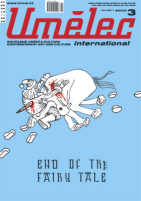






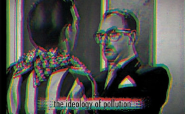








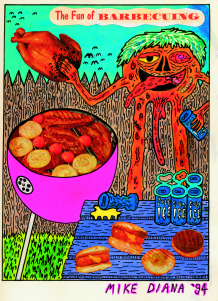




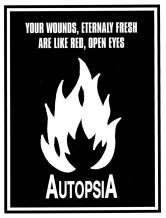
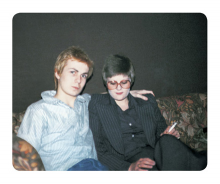
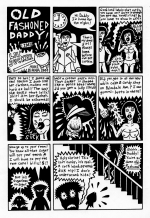
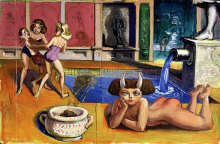


 New book by I.M.Jirous in English at our online bookshop.
New book by I.M.Jirous in English at our online bookshop.
Комментарии
Статья не была прокомментированаДобавить новый комментарий